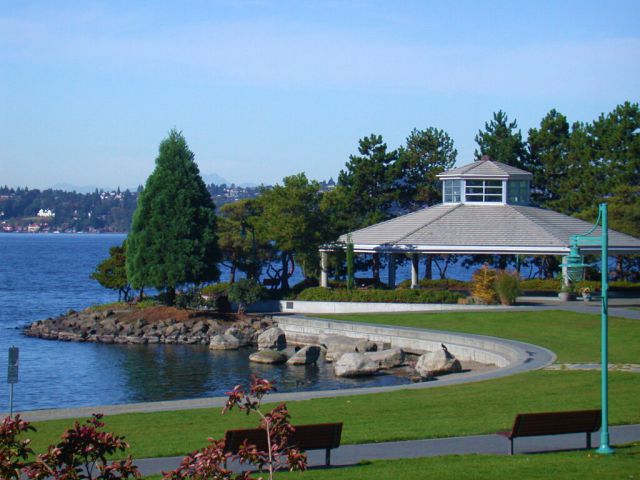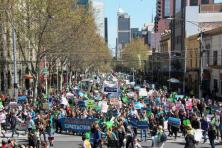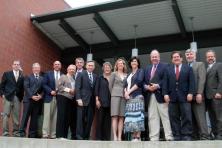2014 is the year for cities to make climate change a top priority. The time is past for aspirational plans. Now the work of choosing and executing strategies that add up to large-scale carbon reduction must begin in earnest. In the Northwest and around the United States, we are seeing early signs that elected officials are responding to this call and starting down the path of hard work.
King County Elected Officials Unite to Reduce Carbon
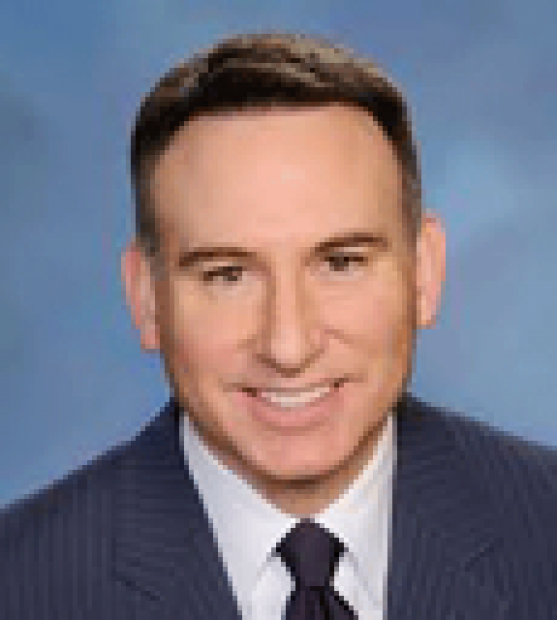
Local leadership on climate action starts at the top, which is why we at New Energy Cities are so encouraged that King County Executive Dow Constantine has made climate change one of the top two priorities for his second term. In his State of the County remarks on February 10, Constantine acknowledged he was signing up the County for an ambitious agenda but noted that the only choice is to aim for a low-carbon future.
Read Eileen Quigley’s blog post, “King County Executive Laser-Focused on Climate Change and Equity.”
Three days later, thirteen King County cities came together at a summit hosted by Executive Constantine and Mercer Island Mayor Bruce Bassett, to consider a shared carbon reduction work program. Building on the work of the King County—Cities Climate Collaboration, and supported by New Energy Cities, participants heard that 80 percent reduction in carbon emissions by 2050 (“80x2050”) is indeed possible, and learned about options for getting there. We anticipate more action from these forward-looking elected officials soon!
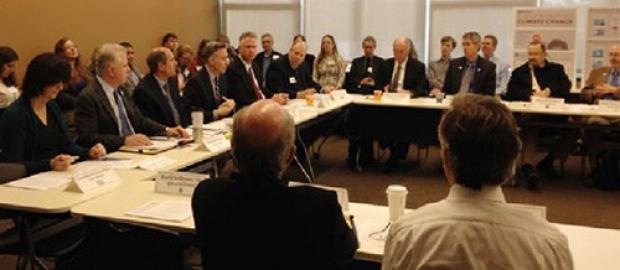
Pathways to Carbon Reduction
Although few cities have actually begun to make dramatic carbon reductions, the pathways are becoming clear. No better example of that is the work of Innovation Network for Communities (INC) and O-H Community Partners, who co-authored “The Road to 2050: ‘80 by 50’ Strategy Maps for Carbon-Neutral Cities,” offering detailed advice about meeting 80x2050 or carbon neutrality. (Find materials from Innovation Network for Communities here.)
Selecting the most leveraged strategies relies on good analysis, but it does not have to be rocket science. We know that the work must include:
- Significant reduction in existing building energy use, which the American Institute of Architects (AIA) has pioneered through the AIA 2030 Commitment, and which projects like the Seattle 2030 District and City Energy Project are designed to achieve.
- Zero net energy (ZNE) consumption annually in new buildings, as the New Buildings Institute continues to champion with its second-edition ZNE building update report, and for which Seattle's new energy code lays an important foundation.
- Phasing out fossil fuels in energy supply through implementation of Washington’s Renewable Portfolio Standard; efforts like Northwest SEED’s Solarize campaigns to spread solar across home and business rooftops; Portland’s crowd-sourcing SolarForward effort; and green power procurement programs like Mercer Island and Microsoft have adopted.
- Continued reductions in vehicle emissions intensity and vehicle miles traveled through efforts like statewide clean fuel standards (Oregon and Washington) and expansion of alternative modes of travel, such as public transit.
- More sustainable consumption and purchasing behaviors, such as those promoted by the West Coast Climate and Materials Management Forum, and specific strategies like King County’s Food Too Good To Waste program.
Cities on the move
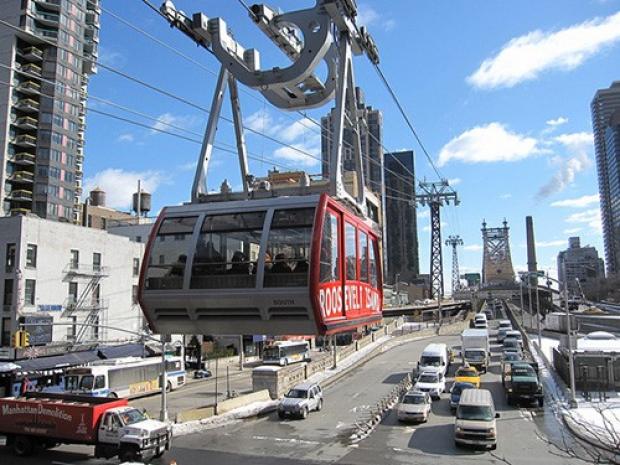
The City of Kirkland, WA and Google co-hosted an advanced transportation symposium earlier this month to explore innovative options for one of the city's high-demand travel corridors. Although no commitments have been made, the City is reportedly considering air gondolas, a mode that has been popular in European cities. Kirkland is among the King County cities that set an 80x2050 community-wide carbon reduction goal.

For the first time, Washington, DC’s Department of General Services published energy and water performance benchmarking data from the District’s largest privately owned commercial and multifamily residential buildings. This information can help building owners, managers, market players, and policymakers identify consumption trends and savings opportunities. A growing number of cities around the country have mandatory energy benchmarking laws for large buildings, but at present only New York City and now DC have publicized their data.
Upcoming Events
- March 6, 2014: Renewable Northwest Project will celebrate an important milestone, its 20th Anniversary, at the Vestas office in Portland.
- March 13, 2014: The King County GreenTools’ 5th Anniversary Sustainable Cities Roundtable will reflect on the lessons and accomplishments of its first five years, and will offer an ecodistricts training for policymakers, urban designers, and community planners.
- March 26-28, 2014: The GLOBE conference in Vancouver, BC is an international forum on long-term strategy for corporate environmental business that attracts over 3,100 participating organizations from 60 countries.
- April 30, 2014: GoGreen Seattle is a “sustainability learning experience for business and government decision-makers,” intended to arm participants with ideas to green their organizations with profitable strategies.
